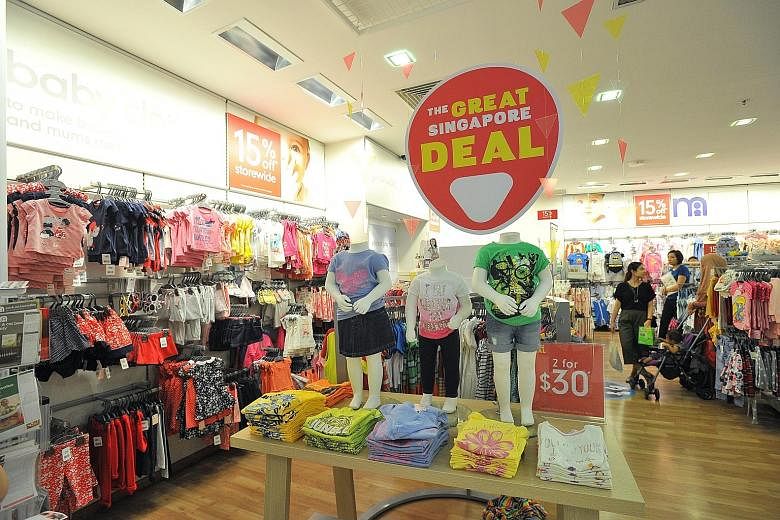Cheaper cars, lower utility bills and steep Great Singapore Sale (GSS) discounts resulted in yet another negative inflation reading in July, even though the cost of day- to-day necessities continued to edge upwards.
Overall consumer prices fell 0.7 per cent last month from a year earlier, the 21st straight month of decline. However, core inflation - which strips out accommodation and private road transport costs to better gauge everyday expenses - ticked up 1 per cent.
Last month's inflation rate was slightly higher than economists' forecast of a 0.5 per cent decrease, and the same as the reading in June.
"A question we have been getting quite often when it comes to analysing recent consumer price trends in Singapore is this: 'So, is it deflation or inflation in Singapore now?' " said United Overseas Bank (UOB) economist Francis Tan. "Our answer is, that depends on what you are spending on."
Lower private road transport costs - which include cars - were one of the key reasons for July's negative inflation reading. These slid 4.4 per cent year-on-year, the Monetary Authority of Singapore (MAS) and Ministry of Trade and Industry (MTI) said in a joint statement yesterday.
Prices of retail items also registered a decline of 0.2 per cent from a year ago, compared with a rise of 0.5 per cent in June. This was mainly due to steeper discounts on clothing and footwear during the GSS, said MTI and MAS.
The cost of electricity, liquefied petroleum gas and gas fell by 12.7 per cent, largely due to lower electricity tariffs.
However, prices elsewhere in the economy continued to edge upwards. Food prices rose 2.1 per cent in July compared with the same month a year ago, as both non-cooked food and restaurant meals became pricier. The cost of household durables and services also went up, increasing 3.2 per cent.
Core inflation is likely to pick up gradually over the rest of the year, partly because oil prices are expected to be slightly higher in this half of the year compared with the first six months, said MAS and MTI.
The disinflationary effects of Budget measures and other one- off programmes will also ease with time and contribute to higher inflation, they noted. These include medical subsidies under the Pioneer Generation Package and the reduction in the concessionary foreign domestic worker levy.
However, the pace of increase will be restrained by deflationary pressures globally, subdued economic growth prospects and the weaker labour market.
UOB's Mr Tan said prices of day- to-day items like hawker food are still rising despite the slowing economy, mainly because companies in some sectors continue to face rising costs. "What goes up seldom comes down," he said.


